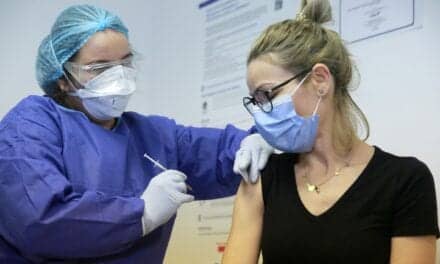Once upon a time, certain HSV tests on the market touted themselves as type-specific and then couldn’t live up to their promise. A new test that targets a specific glycoprotein really does the job this time around. Having been burned once, will the market be twice shy? We look at the paces Meridian put the new test through before its release.
Paul E. Kandarian

The good news is that Meridian Diagnostics has cut through the type hype with a test that targets a specific glycoprotein. The new test for herpes simplex offers a level of diagnostic accuracy and turnaround time that could lead to fewer unwitting infections in adults and babies. While there is no cure for herpes, distinguishing between the two types can help doctors more efficiently manage and control the disease in their patients.
“Several years ago when HSV serology simplex tests were originally launched to clinical labs, they were marketed as being type specific,” said Rick Eberly, Meridian’s vice president of sales and marketing. “When the reality hit home, clinical labs had to communicate to the medical community that they were not type specific.”
Since then, there has been frustration in the medical and clinical community that those first generation tests were not type specific. In late 1998, after acquiring Gull Laboratories, which had been working on type specific herpes tests, Meridian swung that research into high gear. It produced two herpes tests: Premier Type-specific HSV-1 IgG ELISA Test, and Premier Type-specific HSV-2 IgG ELISA Test, the first FDA-cleared medical tests proven to distinguish between herpes viruses.
| Abstract on type-specific herpes test presented by Gull Laboratories at the American Society of Microbiology meeting | January 1998 Research published in Journal of Clinical Microbiology November 1998 |
June 1999 FDA approves Premier Type-specific HSV-1 IgG ELISA Test and Premier Type-specific HSV-2 IgG ELISA Test December 1999 |
| 1997 | 1998 | 1999 |
“You can imagine being a physician telling a patient they have herpes type II when all they had was a cold sore,” Eberly said. “You can imagine what the patient is thinking in terms of the social ramifications.”
That’s why Meridian chose to put the product through extensive clinical trials before launching it in December. “We really scrutinized this test. We put it through pre-marketing clinical trials since the FDA approval (in June 1999) to assure ourselves that it is going to perform in a type-specific manner,” Eberly said.
The test is a very traditional one, an enzyme immunoassay that can be performed in any clinical lab across the country, said Meridian’s vice president of research and development, Ken Kozak.
“What we’ve done is target one glycoprotein that is specific for herpes zI and another glycoprotein for herpes type II,” Kozak said.
The problem with herpes, he said, is that about two-thirds of the estimated 30 million Americans infected with it have no symptoms. Herpes simplex virus infection is the third most prevalent sexually transmitted disease in the United States, infecting up to a half-million people a year. Undiagnosed infection is a main reason why genital herpes is transmitted to sexual partners and infants.
“It’s a very rapidly growing STD,” Eberly said. “Some estimate that the genital side of herpes has grown about 30 percent over the past two decades. It’s now the most common form of genital ulcers. It is very prevalent among teenagers, but it doesn’t get a lot of attention.
“This test is needed. Eighty percent of the population is positive for HSV type I,” he said. “If you don’t have a test to differentiate between I and II, you can’t tell from a positive test result if someone just had genital herpes.”
The test is crucial in managing the disease in pregnant women since it can be transmitted to the child during birth. But when the doctor knows the specific type of herpes present in a pregnant woman, he can suppress the disease with medication and allow a vaginal birth.
Working with Dr. Rhoda Ashley (Diagnostic Virology Section, Children’s Hospital and Regional Medical Center, University of Washington’s) Gull Laboratories originally developed the assay for differentiating between the herpes types, Kozak said, but it didn’t make progress in marketing it until Meridian acquired the company in November 1998.
The timing was right. In the midst of developing and testing the type-specific system, no less an authority than the Centers for Disease Control (CDC) came out with a philosophical backing of the technology.
“In December 1998, the CDC came out with a statement that said, ‘whenever physicians are diagnosing genital herpes, for clinical purposes, for counseling patients or for public health prevention, the only test that should be performed is a truly type-specific HSV test,’” Eberly said. “They were trying to get the scientific and medical community to use a truly type-specific test, anticipating the release of such a test.
“It is rare that the CDC is that outspoken or definitive about diagnosing or managing a particular disease,” he said. “But with herpes so rapidly growing, it falls into that public health sector.”
Despite the FDA approval of the test in June 1999, Meridian was not in any hurry to take it to market. The company waited until late 1999 to launch it.
“There’s never been a test like this before, and we wanted to make sure, across the board, that we had a product that met the needs of the medical community,” Kozak said.




